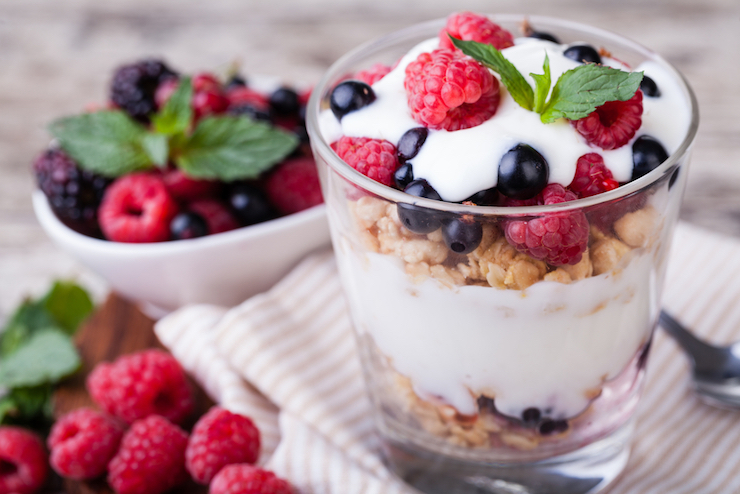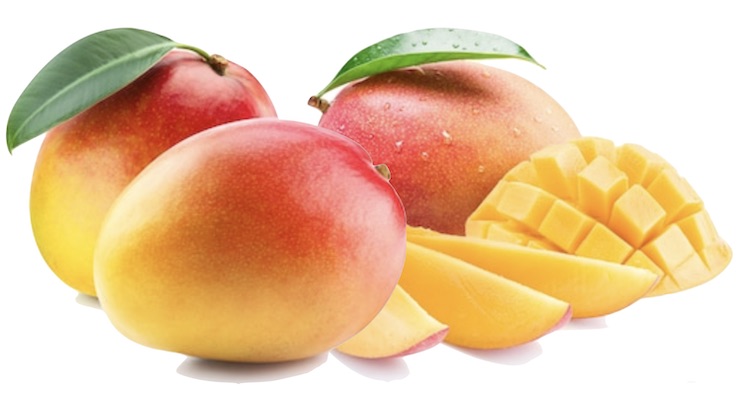Amy Dirks on Making Smart Choices: Tipping The Scales In Your Favor
Nutrition information for soccer players from Amy Dirks, now with a shopping list!
Have a question about the best nutrition for soccer players? Just email Amy or visit Amy Dirks Sports Nutrition.
Preventing illness should always be a priority but now more than ever, the importance of staying healthy and building your immunity is crucial in this compromised time of COVID-19.

What foods and beverages will help this process and what lifestyle factors can we control to maintain the integrity of our most precious asset…our health?
Good Nutrition Can Make A Difference
The saying “You are what you eat” rings true considering 70% of your immune system is in your gut.
If you fuel your gut with what it needs to increase the good bacteria and keep the bad at bay, it’s amazing how invincible your body may become.

NUTRITION for SOCCER PLAYERS: Let’s start with food…
- Eat foods rich in probiotics such as Kefir, organic Greek yogurt, and don’t forget fermented foods such as kimchi, kombucha, and sauerkraut. Kombucha is a wonderful substitute for carbonated beverages such as soda.
- Use your “FARMACY”-vegetables are your best medicine when it comes to antioxidants, vitamins, and minerals. These nutrient-dense foods give you the whole vitamin/mineral source along with fiber to keep your gut and immune system in check. Fresh or frozen, find ways to incorporate veggies through smoothies, soups, stir frys, or juices. There are plenty of greens powders now as well if you prefer drinking your veggies. Try Organifi or Garden of Life.

- Fruits are great for immunity as well but remember, they do have fructose, so when it comes to choosing between a fruit or a veggie, opt for veggies first. Keep frozen fruit handy or freeze any fruit on its way to spoiling for quick smoothies or homemade fruit preserves.
- Use herbs and spices in cooking and teas. Ginger, oregano, rosemary, turmeric, parsley, and garlic are just a few you can find easily.
- Speaking of tea, green tea (matcha is a great option) is a great source of antioxidants so try drinking 2-3 cups daily. Dandelion tea is good for liver health so incorporate it as well if you can.
- Another great drink is bone broth. Both broth promotes a healthy gut and reduces inflammation. Any of the previous herbs/spices mentioned can be incorporated into bone broth, whether homemade or store bought. Use bone broth in soups, as a sipping tea, or in place of water when cooking quinoa and rice.

NUTRITION for SOCCER PLAYERS: Moving on to supplements…
- Vitamin C (try eating foods with Vitamin C such as citrus fruits, mango, pineapple, bell peppers in addition to supplementing).
- Zinc can reduce the symptoms and length of a cold.
- Vitamin D can promote immunity. Use the form D3 if supplementing.

- Probiotics-in addition to eating probiotic rich foods, taking a probiotic supplement is also beneficial as you will get various strands of good bacteria. Just Thrive spore-based probiotic is one brand I recommend.
- Elderberry fights colds, flus, allergies and inflammation.
- Echinacea is another powerful immune system stimulant.

NUTRITION for SOCCER PLAYERS: Don’t forget lifestyle habits….
- Exercise. A walk or run outside can do wonders for your mental and physical health.
- Get your daily Vitamin D through the sun. Morning sunlight is most beneficial. Opt for ~20 minutes/day.
- Work on getting quality sleep every night. Decrease screen time towards bedtime, drink a nighttime tea, take a bath with Epsom salt to increase magnesium. Make quality sleep a priority as your body heals during this time. 10pm-2am is optimal healing time.

- Decrease alcohol consumption if you drink. Alcohol can weaken the immune system. If you are going to partake, choose red wine for more antioxidants.
- Reduce stress in your life; meditate, practice self-care, and focus on being grateful.
- Practice good hygiene. Wash hands, brush your teeth and tongue, take cold showers to boost white blood cells, and stay away when symptomatic. Keep hands away from your face and when using hand sanitizer, put a little around and in your nose as well.
“If you don’t take care of your body, where are you going to live?”
Your body has an amazing ability to work synergistically if you just do a little work for it.

The Ferrari doesn’t run in tip-top shape if given cheap unleaded fuel. Opt for the premium fuel now to increase the longevity of your sports car body.
Grocery List for Staples to Keep You Healthy

- Beans & Lentils; Buy dried beans and lentils or cans of beans. Large pots of beans can be used in several different ways such as beans and rice, bean burritos or enchiladas, Mediterranean bowls, and homemade hummus. Freeze cooked beans for later use.
- Quinoa, Rice, & Pasta; These are all shelf stable and can be used in a variety of dishes. Make a large batch of rice and freeze some for fried rice later. Make a large batch of quinoa and use as a side, in a quinoa bowl, or even in place of oats for breakfast. Don’t forget to make your quinoa or rice in bone broth if you have it for extra nutrition. For the healthiest options, choose red quinoa, brown or wild rice, and bean pastas for extra fiber.
- Canned Fish; Again, shelf stable and can be made into tuna salad, salmon patties or salmon curry salad, or protein for your salad or pasta. Salmon, sardines, and anchovies have a higher Omega 3 content so opt for those if you like them.
- Nut Butters; peanut butter, almond butter, sunflower butter, cashew butter…all typically last a while where natural versions will most likely need to be refrigerated. These can be used in smoothies, on sandwiches, as a side dip for fruit, in oatmeal, or in sauces.
- Oats; regular or steel-cut, oats last quite a while and can be used as a breakfast staple (sweet or savory), in other recipes (such as homemade cookies and granola), energy balls, and in smoothies to increase fiber.
- Eggs; although eggs are not shelf-stable so to speak, they are an excellent source of protein and can last longer than a piece of meat in your fridge. Boil eggs to be used in salads or on avocado toast. Scramble eggs to go into fried rice or breakfast burritos. Fry an egg on top of leftover rice or quinoa and throw on some liquid aminos/soy sauce for an Asian flair. Top with almonds or other nuts.
- Nuts and seeds; quick heart healthy fat and protein to eat alone, add to dishes, smoothies, oats or make your own trail mix.
- Dried fruits; these last quite a while and can sweeten up oats, salads, or trail mixes.
- Popcorn; non-GMO popcorn kernels last in the pantry and can be fun to have for movie nights or to throw into your homemade trail mix. Melt some peanut butter with a little butter and either honey, maple syrup, or brown sugar. Toss to coat the popcorn for a protein popcorn treat.
- Frozen Fruit & Veggies; frozen fruits are great for smoothies or to cook down on the stove to make a fruit preserve in place of sugar-laden jelly. Add to oatmeal or as an ice cream topping. Speaking of ice cream, make your own out of frozen fruit if you have a blender. Frozen veggies can be used in soups, stir frys, or steamed and thrown in those quinoa or rice bowls. Frozen cauliflower and spinach can easily be used in smoothies as well!
- Canned Veggies; not my first choice, but will certainly last the longest. Rinse all canned veggies if you can to reduce the amount of sodium in your food. Jarred tomato sauce can be used for more than spaghetti too. Simmer peppers or green beans in tomato sauce and add shrimp towards the end of cooking for a complete meal.
- Frozen Seafood and Meat; meat can be frozen raw or cooked and then frozen. We always make extra taco meat or shredded chicken and freeze them in small baggies to be used for later. Frozen seafood typically thaws quickly and cooks fast.
- Canned Fruits; Watch these since many times they are laden in syrup instead of their own juices. Fresh and frozen are best but these can be used when the others aren’t available or for travel.
- Almond Milk & Coconut Milk; there are many types of shelf-stable milks available now to use for granola, smoothies, soups, and in various recipes.
- Olives (canned or jarred); these can be eaten alone as a snack or added to salads and other recipes.
- Yogurt and Cheese; Because of the probiotics in yogurt, they can last longer and typically up to a week or more past their use by date on the label. Cheese can also last a while. Cut the block cheese and freeze part of it for later so that the whole block doesn’t go bad in the fridge.
- Sourdough bread; Great for sandwiches or french toast. Freeze a loaf for later as well.
- Ham & Turkey; Buying a large ham and cooking it or a whole turkey can give you multiple meals. Cut up some of each and freeze for later. Use ham in fried rice, ham and beans, ham sandwiches. Use turkey in turkey salad, as a main dish, in a soup, or on a sandwich. Turkey tacos would also work! The deli meat of these would also last for a while in the fridge and can be frozen as well.
- Coffee; Coffee beans that you grind will stay fresher longer. Cold-brew coffees can also last for a while in the fridge and can be warmed up for hot coffee if necessary.
- Bone Broth (Chicken, Beef, Vegetable Broths); these can be shelf stable and used in many recipes or to sip as a tea.





